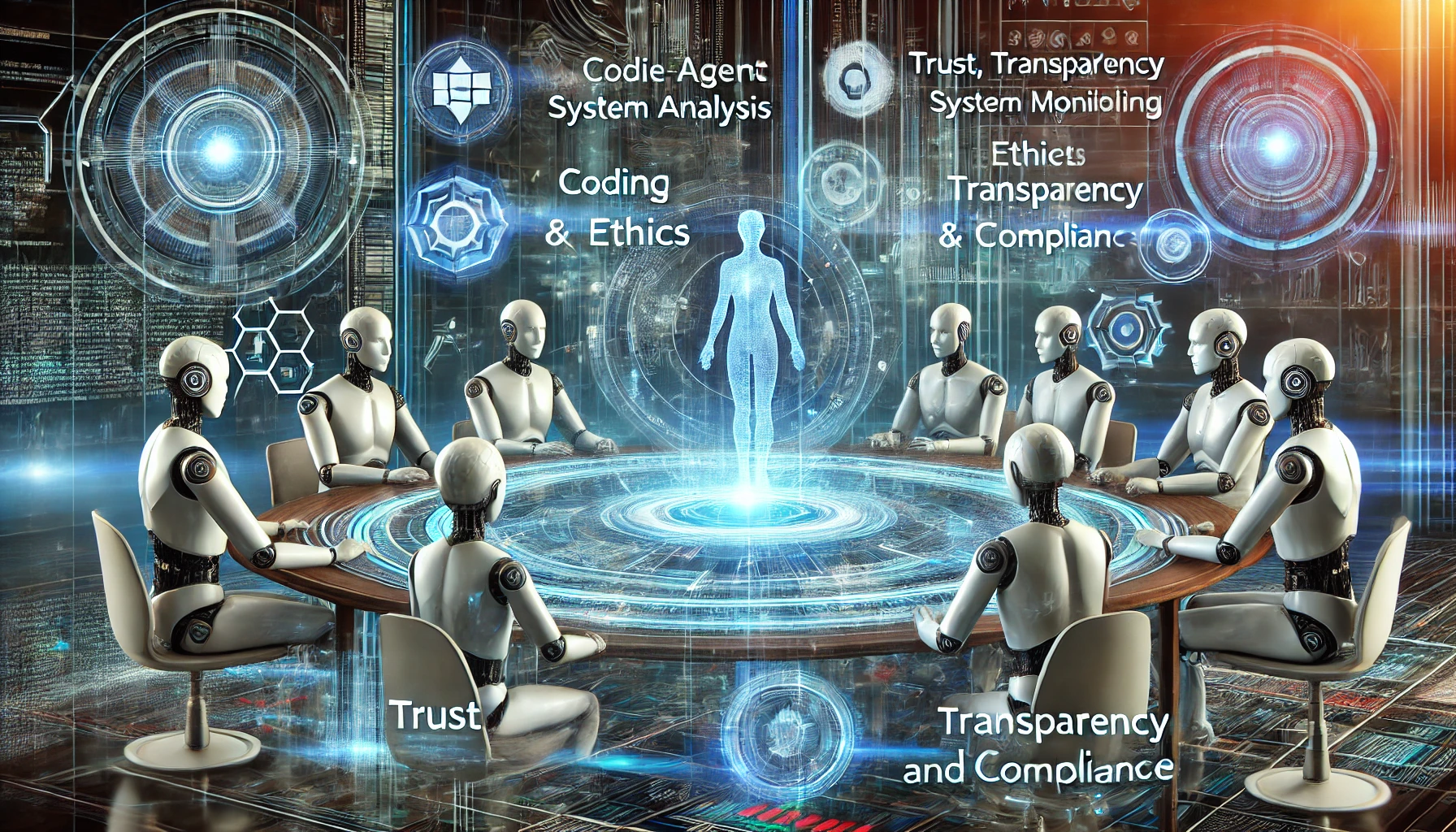Can AI be Trustworthy? Leveraging Multi-Agent Systems for Ethical Innovation
Researchers from Tampere University, the University of Jyvaskyla, and the University of Vaasa developed a multi-agent LLM system (LLM-BMAS) to enhance ethical AI development, demonstrating its potential to address bias, transparency, and legal compliance while identifying practical challenges in usability and integration. The study highlights the importance of trustworthiness techniques and structured collaboration in creating reliable, ethically aligned AI systems.

A study by researchers from Tampere University, the University of Jyvaskyla, and the University of Vaasa explores the trustworthiness of Large Language Models (LLMs) in creating ethically aligned AI systems. Using a Design Science Research methodology, the team investigates how multi-agent systems leveraging LLMs can operationalize ethical principles, a significant challenge as AI technologies continue to advance and influence various domains. Central to their research is the development of LLM-BMAS, a prototype multi-agent system designed to tackle ethical challenges in AI development through structured communication, distinct agent roles, and iterative debates. This system comprises three agents with specialized roles, including two senior Python developers and one AI ethicist, who collaborate to address ethical and functional challenges in AI projects derived from real-world incidents documented in the AI Incident Database.
From Abstract Guidelines to Practical Solutions
The study addresses a pressing need for practical guidance in implementing ethical principles in AI development, a space often dominated by abstract and high-level guidelines. LLM-BMAS facilitates discussions and code generation for projects such as developing AI recruitment tools that eliminate biases, creating deepfake detection systems, and ensuring fairness in image classification tasks. The researchers evaluate the system through multiple methods, including thematic analysis, hierarchical clustering, ablation studies, and practical source code execution. By comparing LLM-BMAS outputs to simpler single-agent approaches, the study highlights significant improvements in generating detailed, ethically compliant documentation and source code. For instance, while the prototype produced outputs containing nearly 2,000 lines of detailed discussion and code per project, single-agent setups generated far less, often devoid of functional source code.
Unveiling Ethical Strengths and Practical Challenges
Key findings emphasize the effectiveness of the multi-agent system in addressing overlooked ethical concerns. Themes such as bias detection, GDPR compliance, transparency, fairness evaluation, and adherence to legal frameworks like the EU AI Act emerged consistently in the outputs. These results showcase the ability of the LLM-BMAS system to incorporate both theoretical and practical dimensions of ethical AI into its outputs. However, the research also identifies challenges for practitioners. Integrating and testing the generated source code proved cumbersome due to scattered outputs, outdated dependencies, and the need for manual adjustments to accommodate deprecated software packages. These obstacles underscore the gap between theoretical advancements in LLMs and their practical applicability in real-world software engineering workflows.
Multi-Agent Collaboration Drives Ethical AI Development
An important aspect of the research involves assessing the practical utility of the generated outputs. The source codes were tested for functionality, revealing that while the LLM-BMAS system could produce extensive and sophisticated outputs, their usability required significant post-processing by developers. This reinforces the need for further refinements in LLM-based systems to ensure seamless integration into existing software development pipelines. Additionally, the study’s ablation experiments, which removed the multi-agent framework and relied solely on single-agent interactions, underscored the superiority of the LLM-BMAS approach. The ablation setups produced only brief, generic outputs lacking depth and actionable insights, further validating the advantages of employing structured, role-based collaboration.
Advancing Trustworthy and Ethical AI Applications
The research also delves into the broader implications of trustworthiness in AI systems. By combining specialized roles and iterative debates, the prototype fosters greater accountability and reliability in AI-generated outputs. These techniques align with ongoing discussions in AI ethics, emphasizing the need for systems that not only meet technical requirements but also adhere to societal norms and legal standards. The study makes a significant contribution to this discourse by demonstrating how LLMs can be harnessed to address ethical concerns proactively, starting from the earliest stages of AI system development. This approach contrasts with the common practice of treating ethical considerations as an afterthought, highlighting the importance of integrating ethics into the design and implementation processes.
While the results are promising, the study acknowledges several threats to validity, including the non-deterministic nature of LLM outputs and the risk of circular reasoning when AI systems evaluate other AI-generated content. The absence of human involvement in the thematic analysis and hierarchical clustering further raises concerns about the interpretability and depth of the findings. Future work will incorporate human-in-the-loop methodologies to validate AI-generated outputs, ensuring they align with ethical principles and practical requirements. Additionally, the researchers plan to conduct more rigorous assessments of the generated source codes to evaluate their ethical implications fully. In conclusion, the study sheds light on the potential and challenges of using LLM-based multi-agent systems for ethical AI development. While the LLM-BMAS prototype demonstrates significant advancements in aligning AI systems with ethical standards, its practical implementation requires overcoming usability and dependency management hurdles. By advancing methodologies for improving trustworthiness in LLMs, this research paves the way for future more robust, ethical, and reliable AI applications.
- READ MORE ON:
- Large Language Models
- LLMs
- AI development
- LLM-BMAS
- FIRST PUBLISHED IN:
- Devdiscourse










